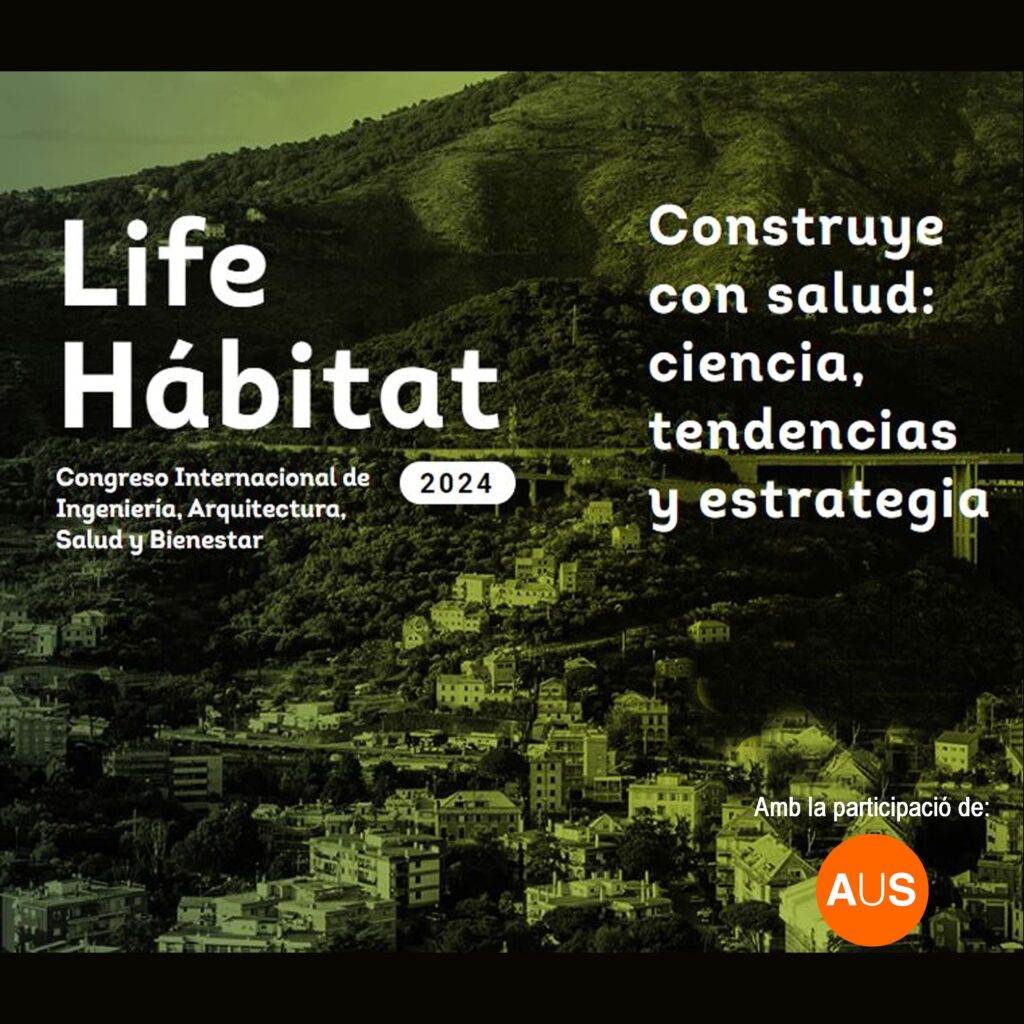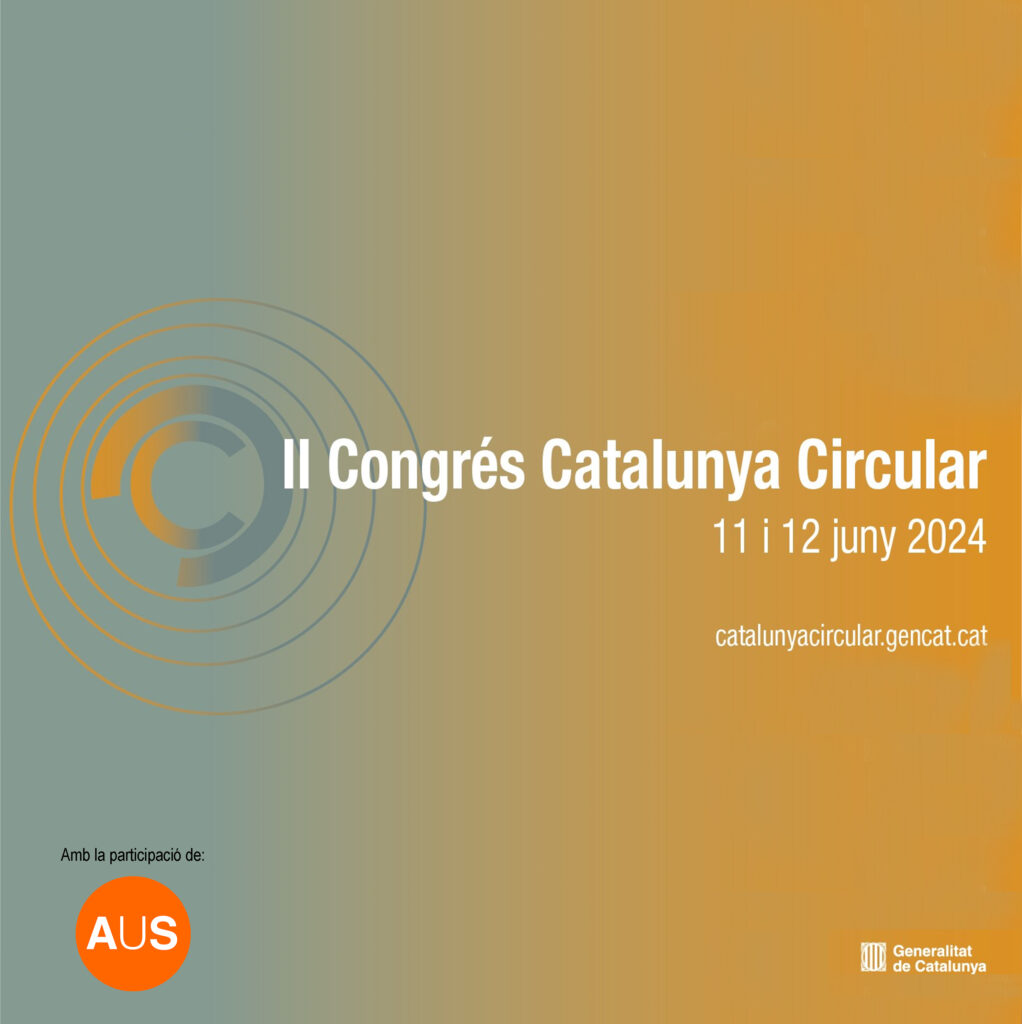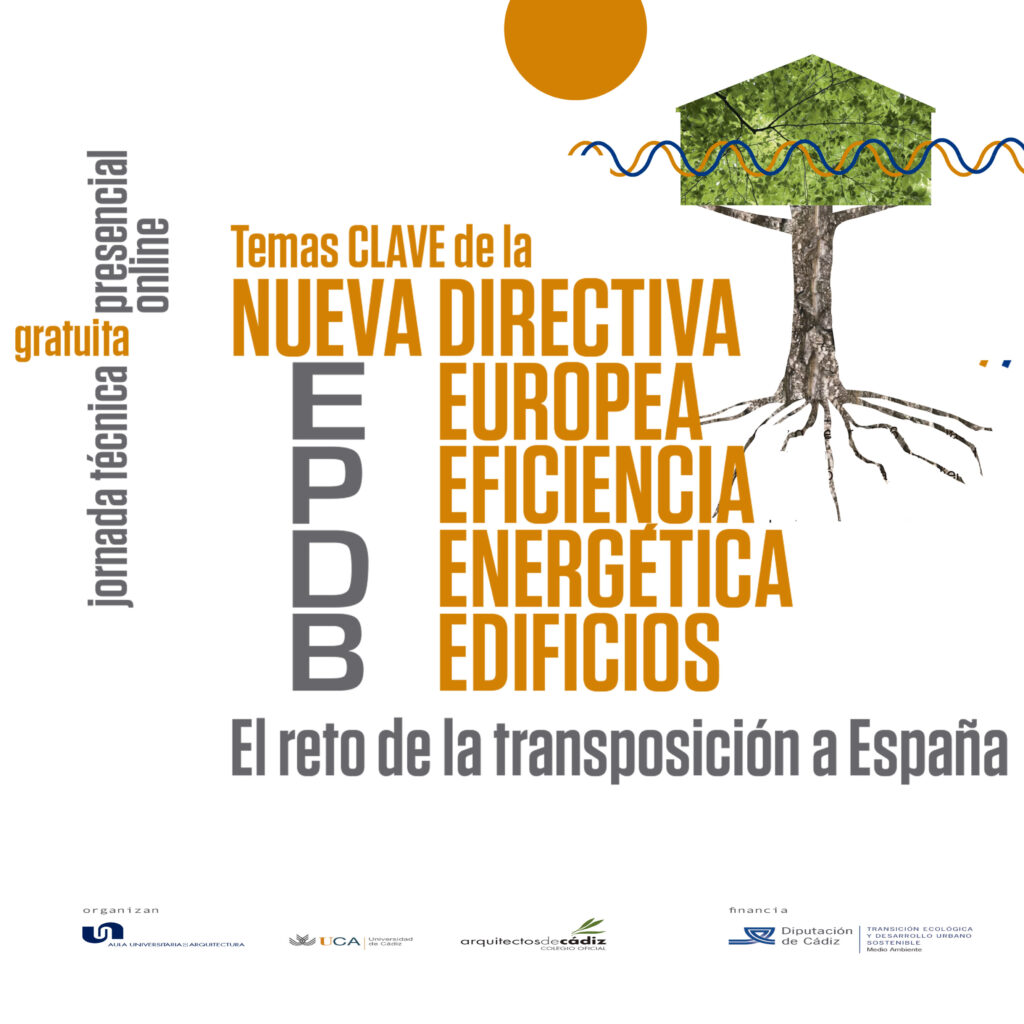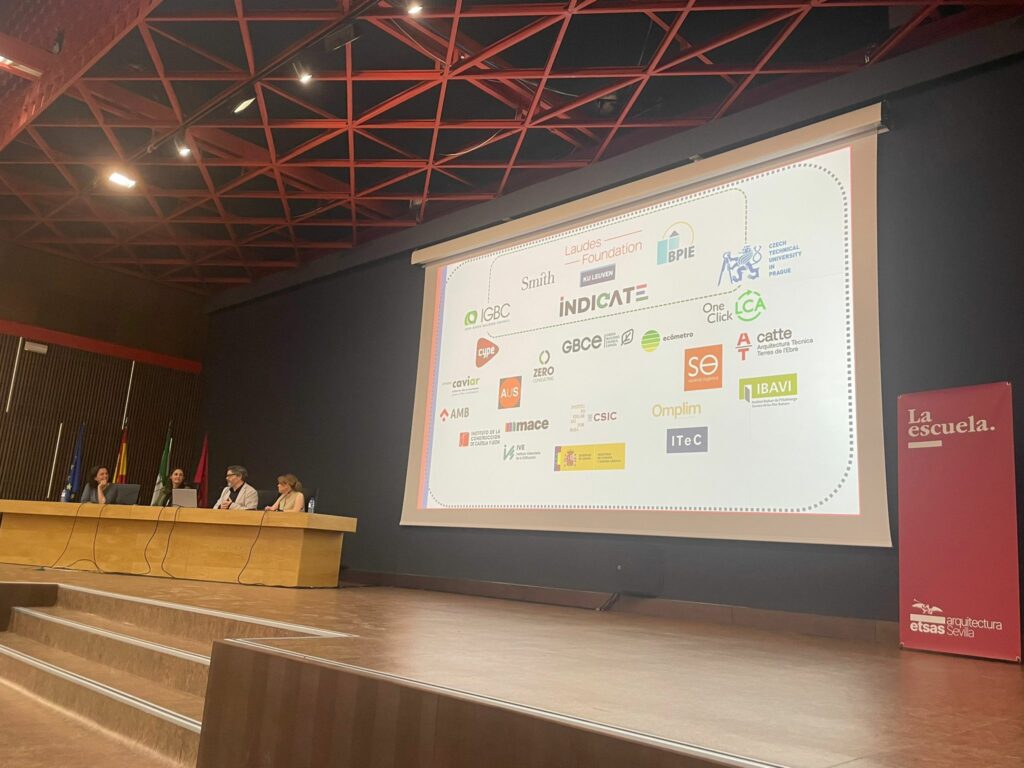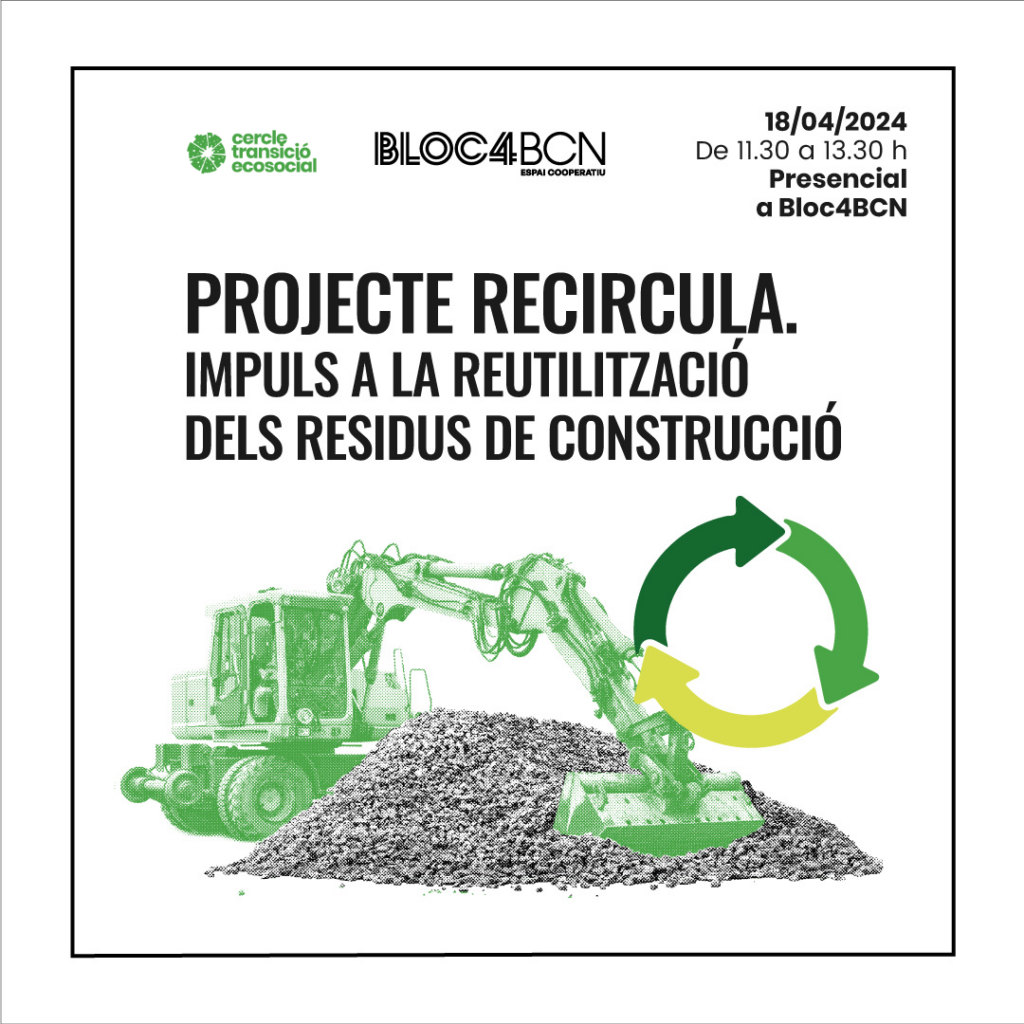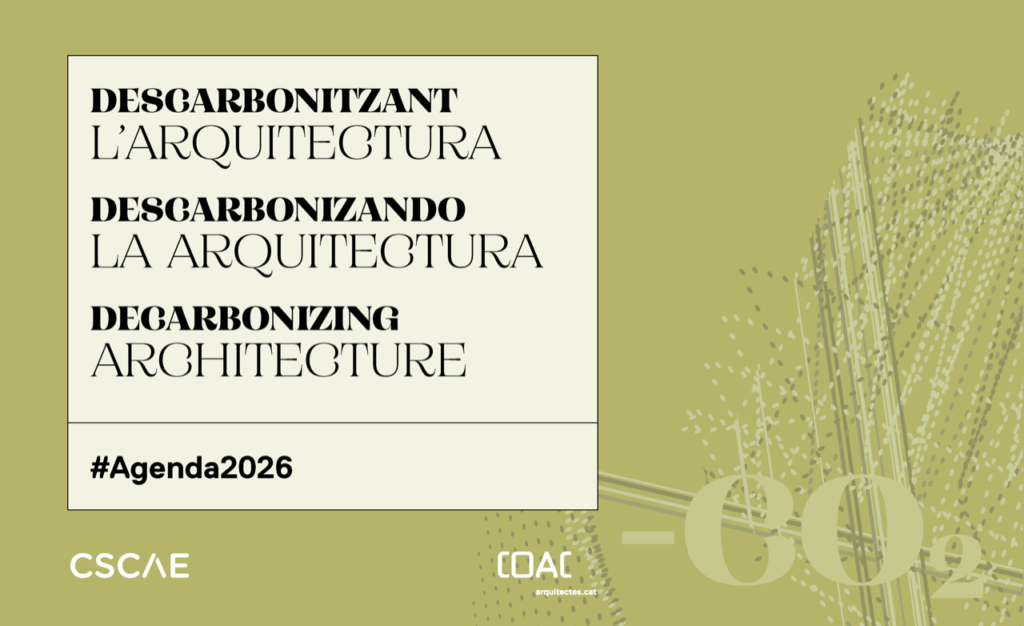GT2
CARBON FOOTPRINT OF MATERIALS
- Home
- chevron_right
- Work Groups
- chevron_right
- GT2

Group Coordinator:
Albert Sagrera y Jade Serra

Contact:
aus.gruptreball2@gmail.com
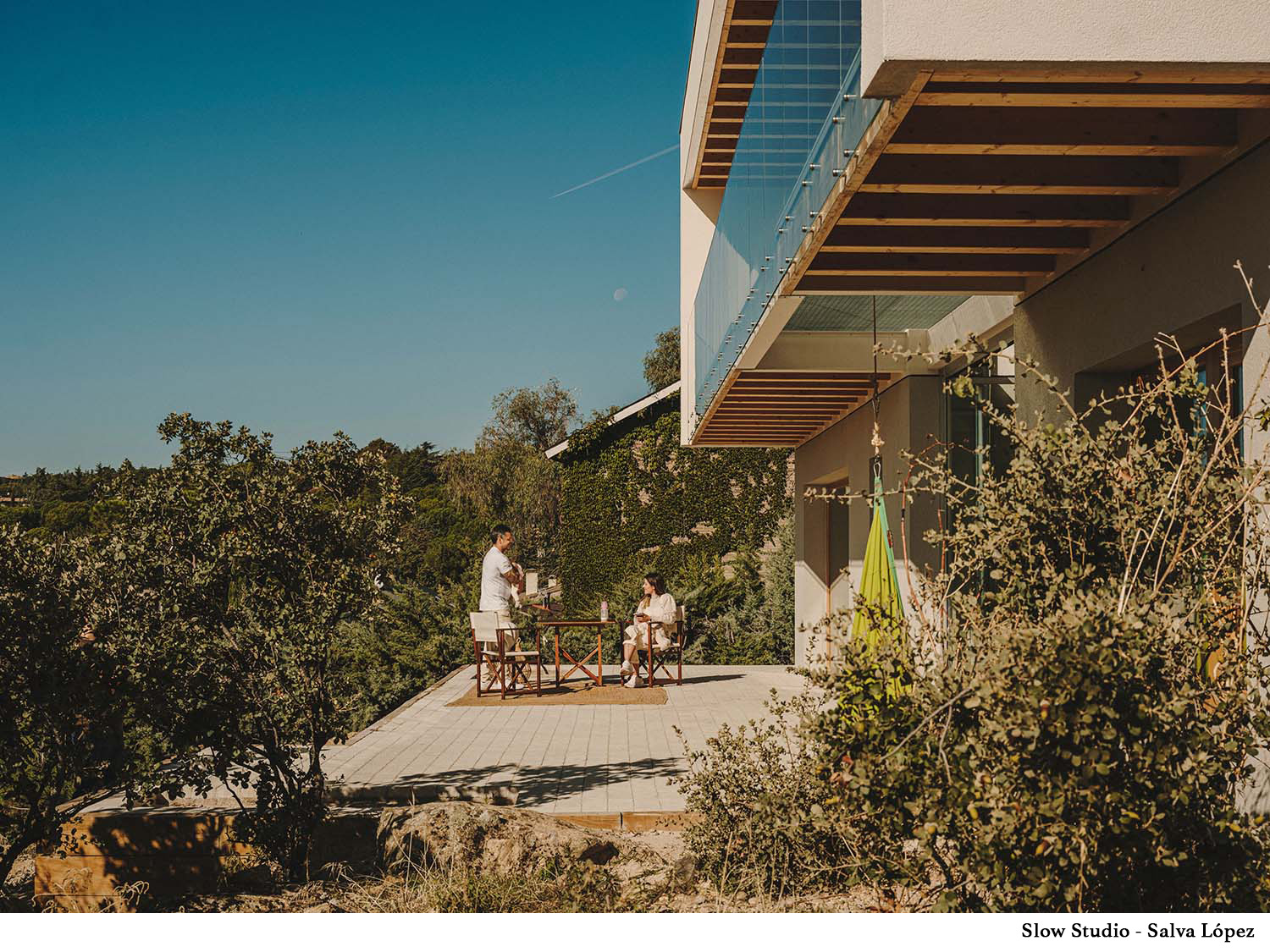
OBJECTIVE
The emissions associated with the building sector (as well as other environmental impacts) account for more than a third of society’s global emissions. The portion corresponding to construction materials accounts for around 11% of global greenhouse gas emissions. Moving towards a decarbonized built environment involves assessing the environmental impact and health throughout the life cycle of a building, from the production of its materials, through its construction, use phase, and dismantling at the end of its useful life. The recent European directive EPBD, the draft of which was approved in March of last year, marks the first step towards regulating the carbon impact in construction, with CO2 emissions required to be declared for all new buildings from 2027 onwards. Several European countries – Finland, France, Denmark, Belgium, the Netherlands, among others – have advanced to European regulation and already have decarbonization roadmaps in place, which not only require accounting but also limit CO₂ emissions and other impacts associated with construction processes. The main objective of our working group is to act as an action lobby to demand and collaborate in the decarbonization of the construction sector through research, dissemination, and direct action, alongside related groups and associations, as well as with the administration.
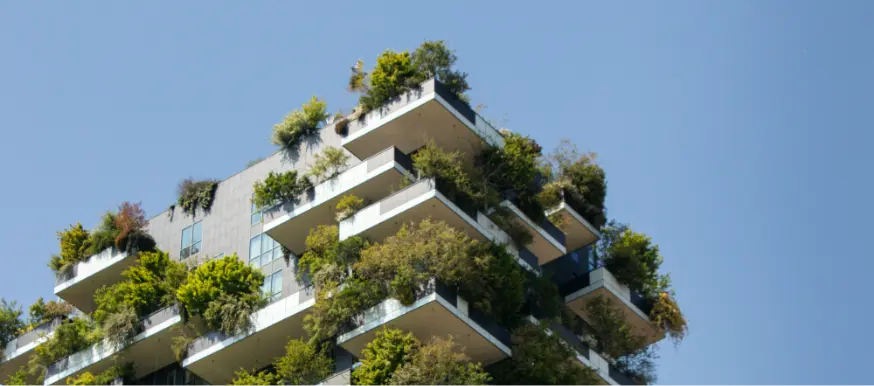
TARGET
Emissions associated with the building sector (as well as other environmental impacts) account for more than one third of society’s global emissions. The share of building materials accounts for about 11% of global greenhouse gas emissions. Moving towards a decarbonised built environment implies assessing the environmental and health impacts throughout the entire life cycle of a building, from the production of its materials, through its commissioning, use phase and decommissioning at the end of its life. The recent European EPBD directive, the draft of which was approved in March 2023, marks the first step towards regulating the carbon impact of construction, with CO2 emissions to be reported for all new buildings from 2027 onwards. Several European countries – Finland, France, Denmark, Belgium or the Netherlands, among others – have moved ahead of the European regulation and already have decarbonisation roadmaps in place that not only require counting but also limit CO2 emissions and other impacts associated with construction processes. The main objective of our working group is to act as an action lobby to demand and collaborate in the decarbonisation of the construction sector through research, dissemination and direct action, together with related groups and associations, as well as with the administration.
WHAT WE ARE WORKING ON
GT2 is divided into different working subgroups of thematic areas necessary to address the objectives outlined below. The main topics covered are: research on decarbonization roadmaps for construction implemented by different EU countries, through the study of regulations, implementation frameworks, and routes, and by contacting architects and associations at the international level. Analysis of how roadmaps incorporate other environmental impacts, especially regarding health and biohabitability aspects. Study and critical review of decarbonization roadmaps for industrialized materials both nationally and internationally. Analysis of the environmental impact of the sector and materials to have reliable and continuous data that allow us to justify the need to act and minimize them. Evaluation of the state of the art and short- and medium-term challenges of environmental product declarations. Participation in the first project to calculate the carbon footprint of residential buildings in Spain, INDICATE, funded by the Laudes Foundation, led by GBCe and the University of Seville, and developed in collaboration with prominent associations and administrations in the sector. Development of the first tool for calculating CO₂ emissions from the Architects’ Association of Catalonia in collaboration with ITeC, free for all members, which will provide a reference for emissions from new buildings at different levels of approximation. Preparation of informative publications that gather the necessary steps to be taken in our sector, in relation to the decarbonization roadmap in our country, and the necessary role of decarbonizing industrialized materials.
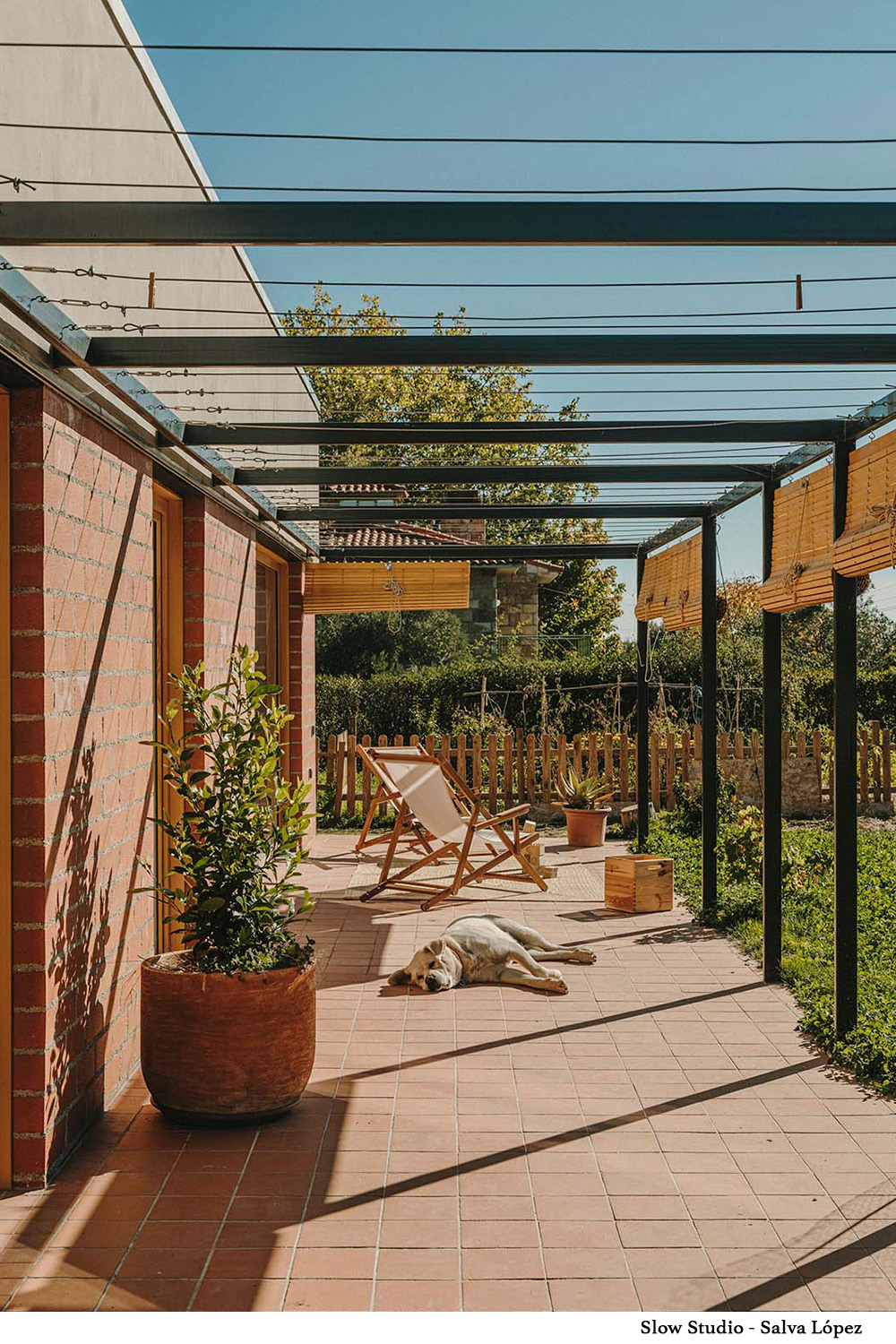
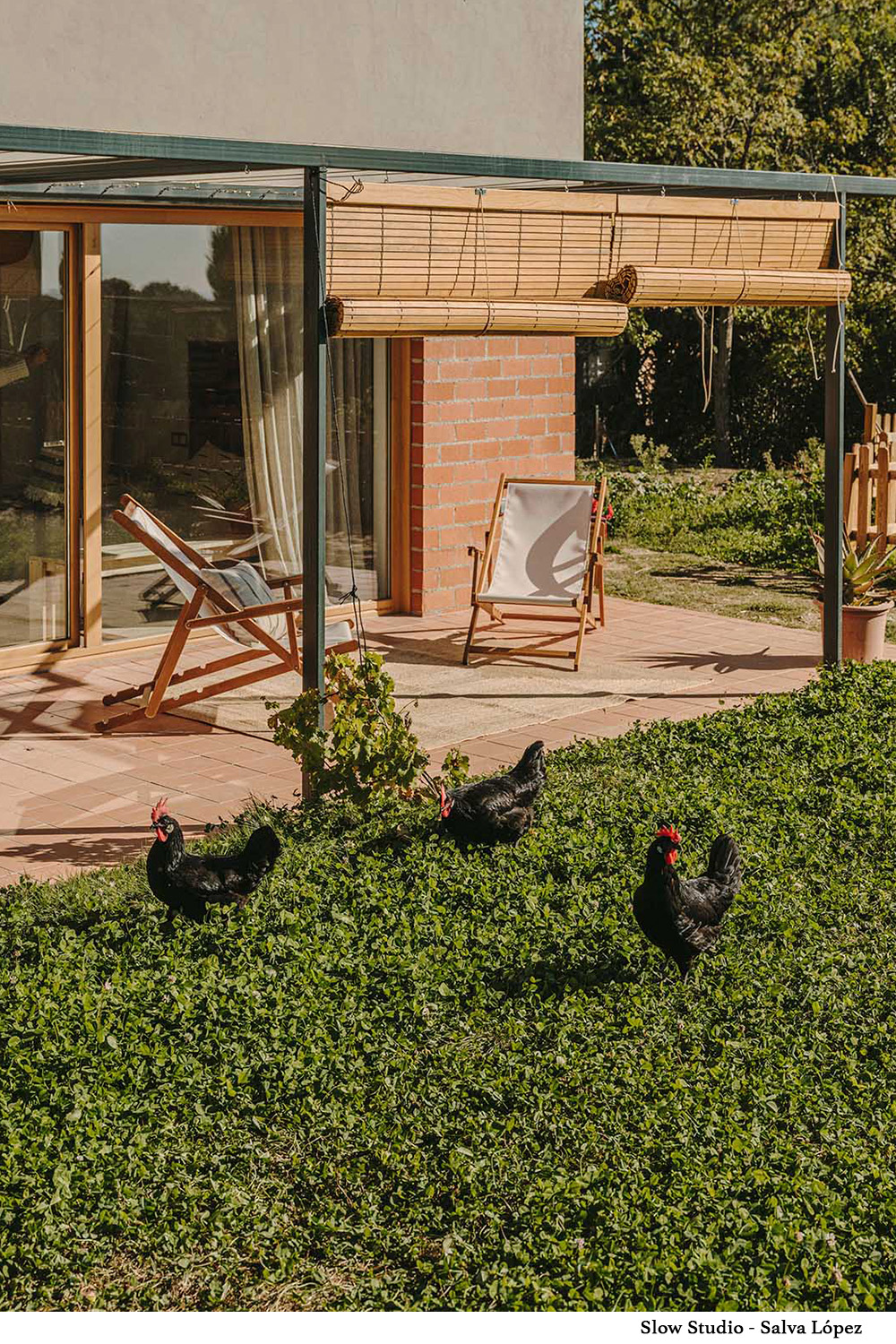
WHAT WE HAVE ACHIEVED
- We actively participated in the first construction decarbonization conference, held at the Architects’ Association of Catalonia on November 23, 2022, attended by more than 300 people and with the presence of various relevant authorities in the Spanish and international fields.
- We are preparing two informative publications regarding the decarbonization of the construction sector, which compile the work of each subgroup done so far. Participation in various European and national projects related to the implementation of CO₂ emissions accounting and limitation in the construction sector in our country.
COMPLETED PROJECTS
- Preparation and participation in the new autumn decarbonization conference co-organized by COAC, CSCAE, and ACE. EMISSIONS CALCULATION TOOL. Tool developed in collaboration with ITeC that will allow the first calculation of emissions from new buildings approved in Catalonia.
-
INDICATE PROJECT. The Indicate project funded by the Laudes Foundation and coordinated by GBCe and the University of Seville aims to establish the first reference index of emissions from residential buildings in our country.
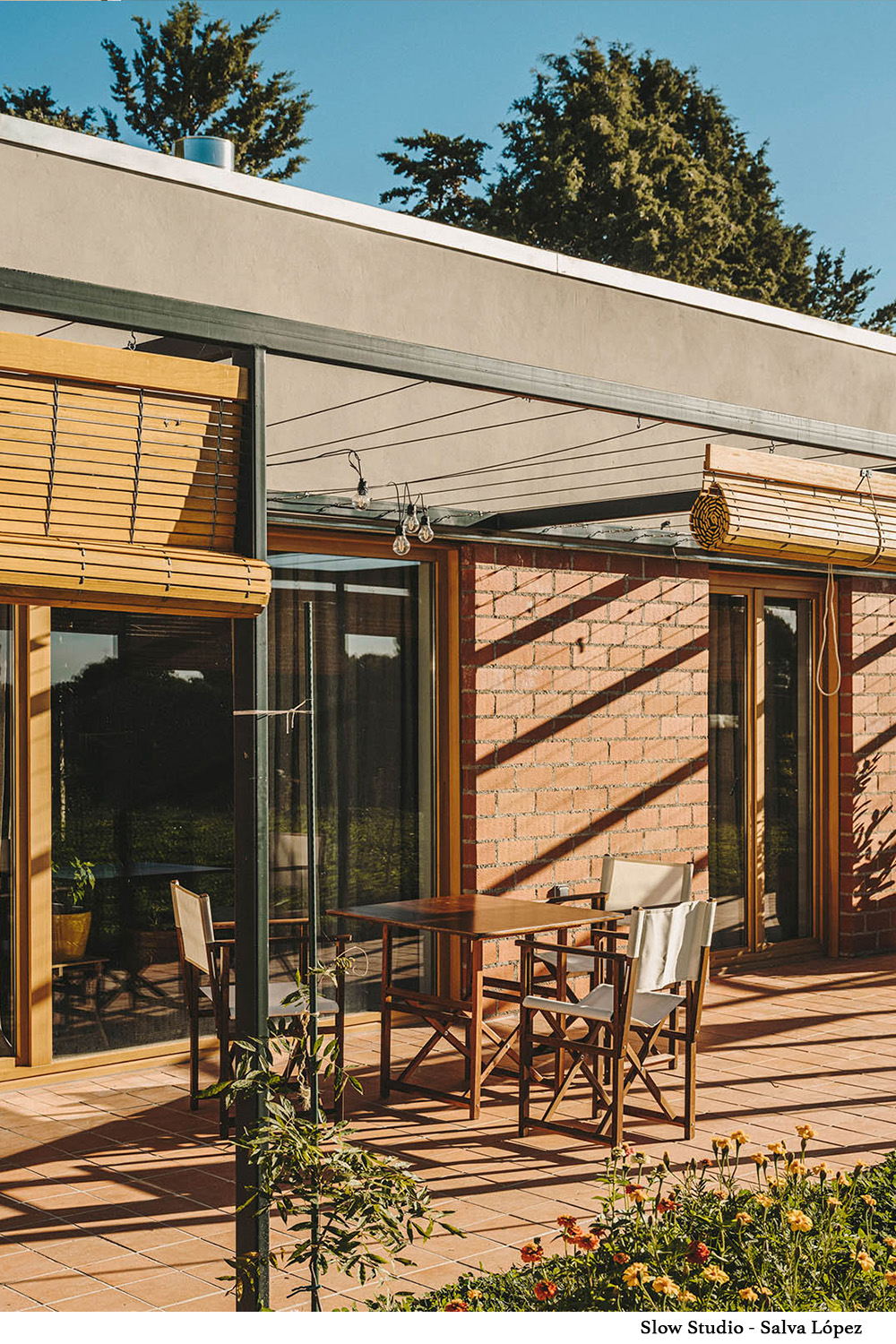
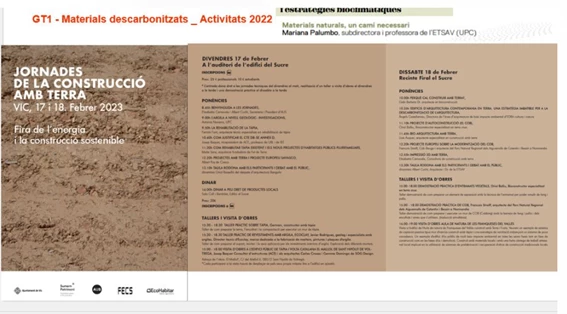
PROJECTS CARRIED OUT
- Preparation and participation in the new autumn conference on decarbonisation co-organised by the COAC, CSCAE and ACE.
EMISSIONS CALCULATION TOOL. Tool developed in collaboration with ITeC that will allow the first calculation of emissions from newly constructed buildings approved in Catalonia.
INDICATE PROJECT. The Indicate project, financed by the Laudes Foundation and coordinated by GBCe and the University of Seville, aims to establish the first reference index of emissions from buildings in the residential sector in Spain.
RECENT ACTIVITIES
NEXT MEETING
The working groups are intended for AUS members. However, if you are interested in becoming a member, we invite you to participate and attend one of our working group meetings without joining. Most of our meetings are held online.
To request the access link, please send an email to aus.gruptreball2@gmail.com.

